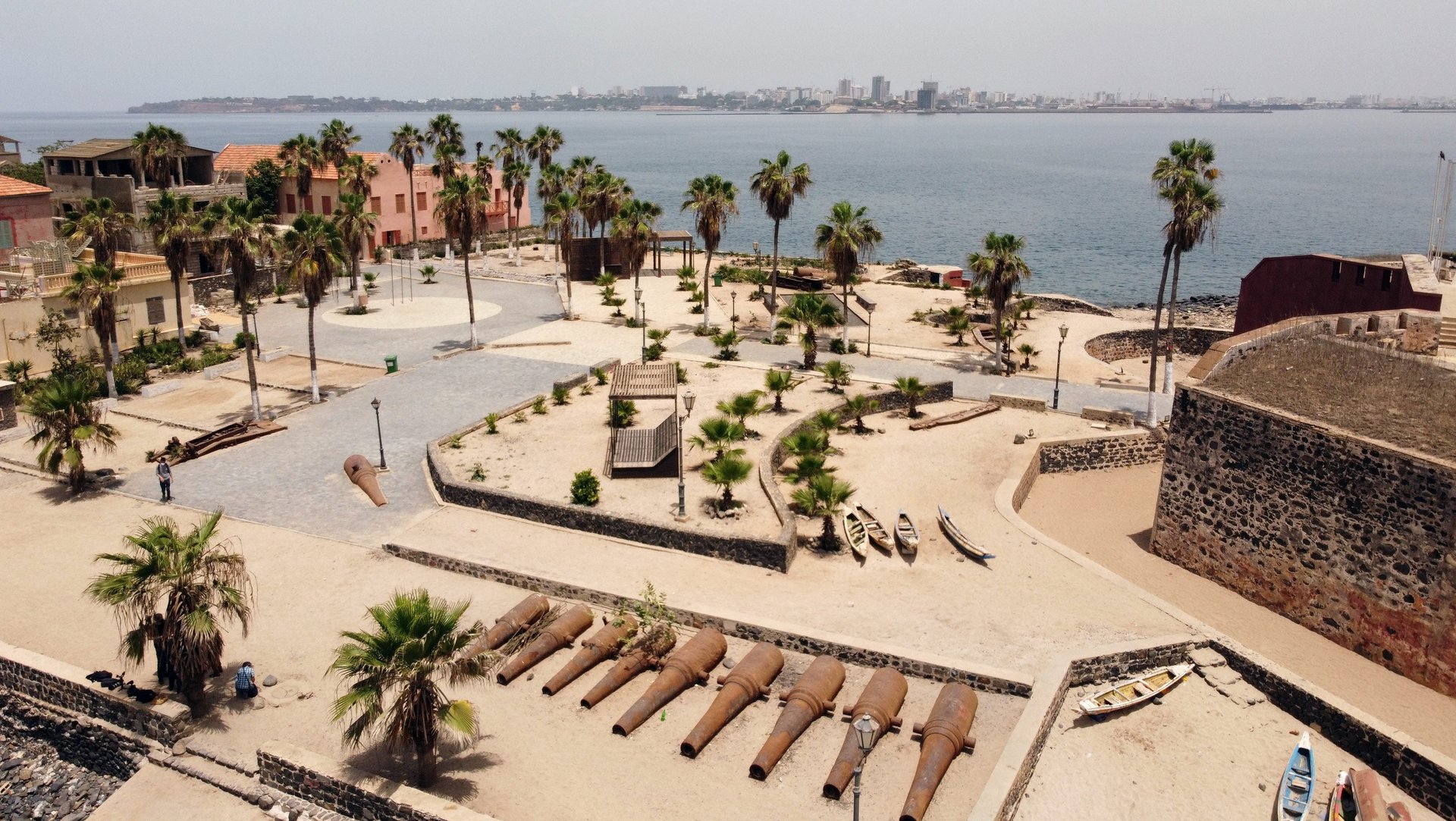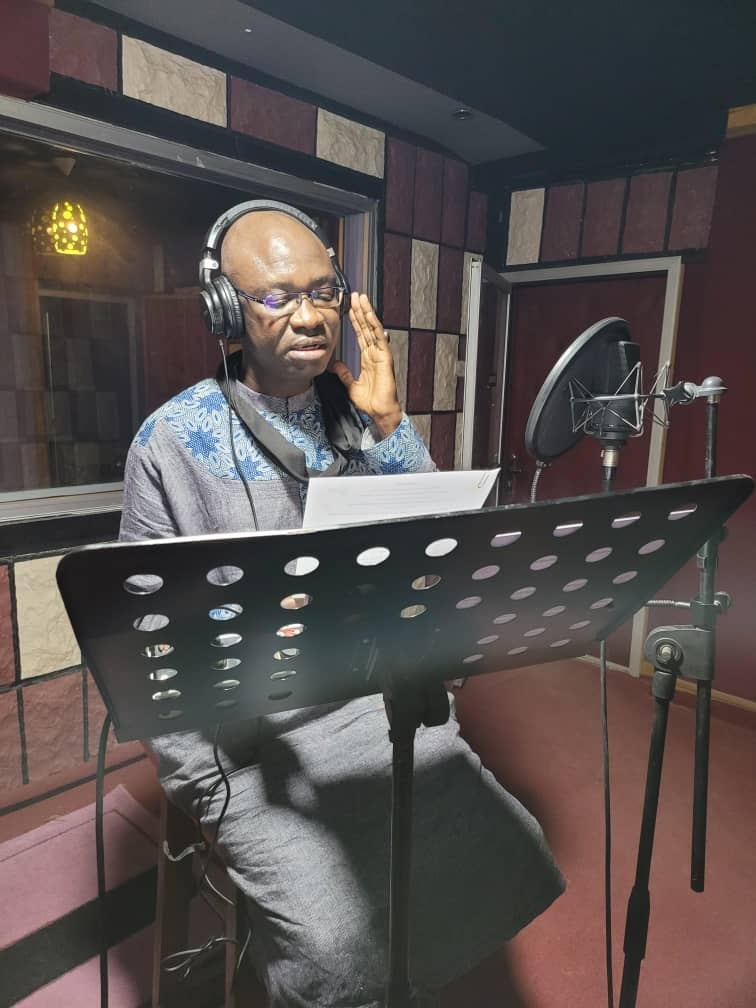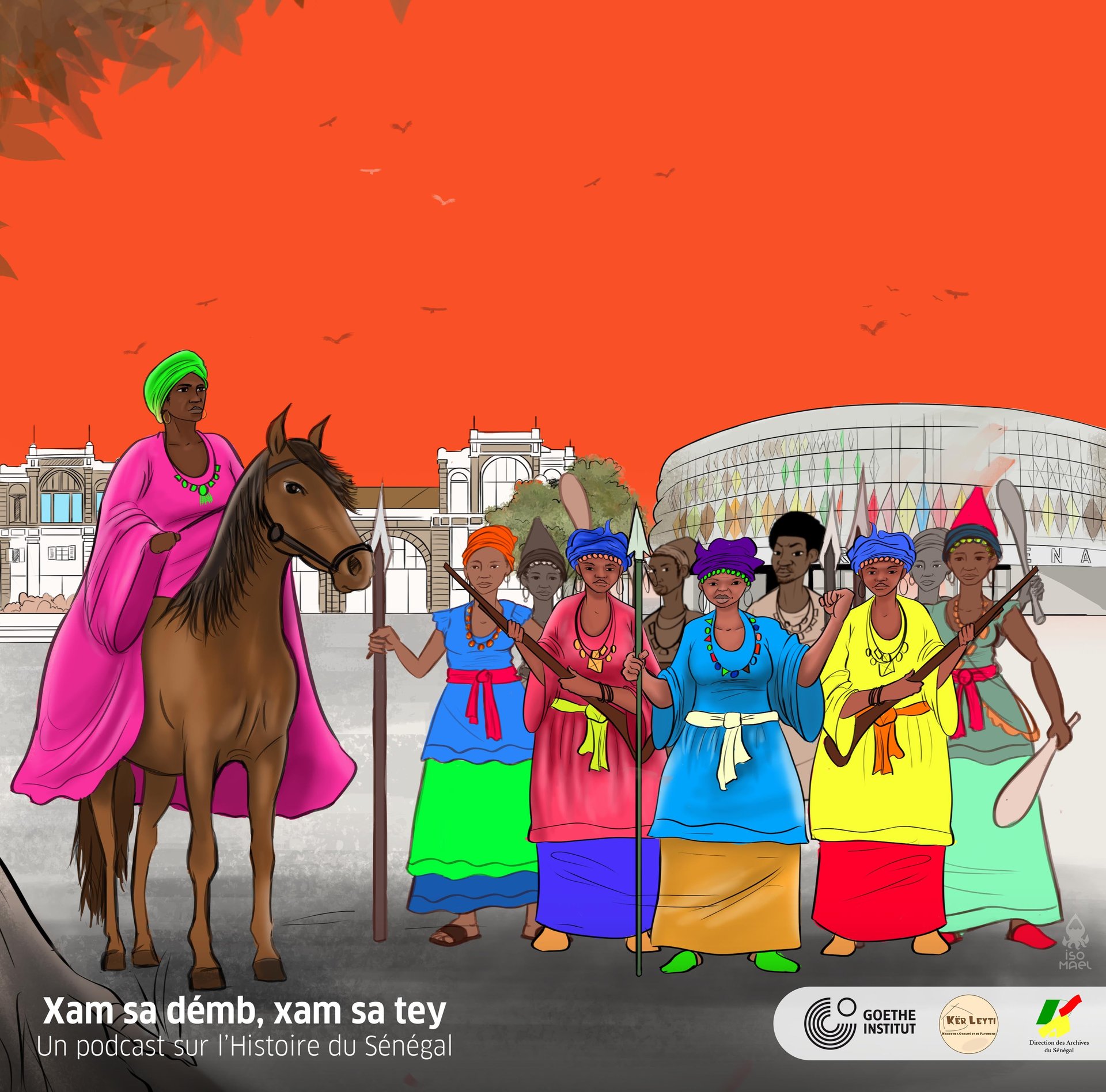Senegal is preserving its oral history in a podcast
“Let me tell you the marvelous history of our Senegal. Let me take you on a journey into the great feats of glory,” begins Massamba Gueye in a voice that promises epic tales to come.


“Let me tell you the marvelous history of our Senegal. Let me take you on a journey into the great feats of glory,” begins Massamba Gueye in a voice that promises epic tales to come.
The famed Senegalese storyteller is accustomed to speaking to crowds of captivated children or packed theater halls. But this time Gueye is alone in a studio, recording a podcast.
The podcast Xam sa démb, xam sa tey (“Know your past, know your present”) is the product of a partnership between Senegal’s National Archives, the Goethe-Institut, and the House of Orality and Heritage, a cultural center founded by Gueye. Through 50 episodes published online in Wolof and French, it aims to make Senegalese history accessible to youth and to preserve the country’s storytelling tradition.

“Orality still plays an important role in the transmission of knowledge on the African continent,” says Bouya Fall, director of the library at Goethe-Institut Senegal, a branch of the worldwide German cultural association. “It was in the desire to prolong this tradition, by adapting it to the modern and digital world, that we decided to produce this podcast.”
The podcast started in February and will continue into 2022 with a new episode every Tuesday. At less than 15 minutes long, each episode tackles a different topic in Senegalese history, from the well-known island of Gorée, an old slave-trading post, to the story of Ndate Yalla Mbooj, a Wolof queen who fought against French colonization in the mid-1800s.
The scripts were written by Ibrahima Wane, a professor of African literature at Dakar’s Cheikh Anta Diop University, and drawn from National Archive documents, which were then re-worked and narrated by Gueye, the project’s artistic director.
Some of the topics are taught in schools, said Gueye, but he’s concerned about how much kids really retain. Lessons can be dry and students rarely go to the library anymore to check out books, he said.
“More and more I receive requests about the history of Senegal. Every day I get a dozen calls with people asking me to explain something,” said Gueye, who wears many hats including professor, writer and advisor to the Senegalese government. He has worked on other radio shows and podcasts, but said this is the first of such scope and ambition.
More than 9,000 people have visited the podcast’s website, said Fall, although there are no statistics on how many have listened to the episodes, which are free to stream or download. Feedback has been positive, including from Senegalese immigrants living in Europe who said their children are listening to learn their history, she said.

Once all 50 episodes have been produced the plan is to create an “audio corner” in the National Archives where people can come listen, and to make them available in schools and museums, said Fall.
Gueye says oral transmission has faded in Senegal as more people have learned to read and write, but it is still the primary means of knowledge transfer in certain domains, such as traditional medicine, crafts and sewing. He founded the House of Orality and Heritage in Dakar in 2012 as a center for research and documentation of oral traditions.
“Our entire heritage, not only our history but our laws, our religion, our customs, everything was passed down by oral transmission,” he said.
Even the younger generation has shown its penchant for the spoken word through its use of the audio elements of social media, said Gueye. The dominant messaging platform in Senegal is WhatsApp, and most people use it to send voice notes rather than texts. The podcast therefore reaches youth in a medium they already consume.
“I think social media has helped orality come alive again,” said Gueye.
Sign up to the Quartz Africa Weekly Brief here for news and analysis on African business, tech, and innovation in your inbox.